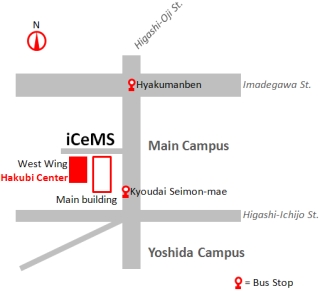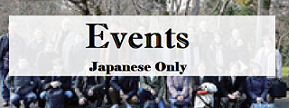Seminar index
67th Hakubi Seminar
Number concepts in non-literate societies from an ethnomathematical perspective
- Speaker:Noa Nishimoto (The Hakubi Center for Advanced Research)
- Date:5th November 2013 (Tuesday), 16:00-
- Venue:The Hakubi Center for advanced research (iCeMS West Wing 2F, Seminar Room)
- Presentation Language:English
Summary
This talk deals with number concepts in non-literate societies. To distinguish them from Western mathematics, I employ the termethnomathematics (D’Ambrosio 1977), which has been used to refer to various aspects of the relationship between mathematics and culture. My work engages in analysis and description of several endangered or little-studied languages, in particular Malagasy (Tandroy dialect), Rurutu and Rapa Nui. In the same way as languages, number concepts exist universally across all human societies, ethnic groups, and regions. Field surveys I carried out in Madagascar, French Polynesia, and Rapa Nui (Easter Island) revealed that counting systems and any other natural cognition in these societies are closely related to their local languages, a finding that gives rise to several intriguing questions. In this research project, I not only look at linguistic number categories but also carefully observe the relationships between local peoples and the natural phenomena as manifested in cultural phenomena such as agricultural calendars, botanic cycles, the motion of celestial bodies, and the calculation of the seasons.









